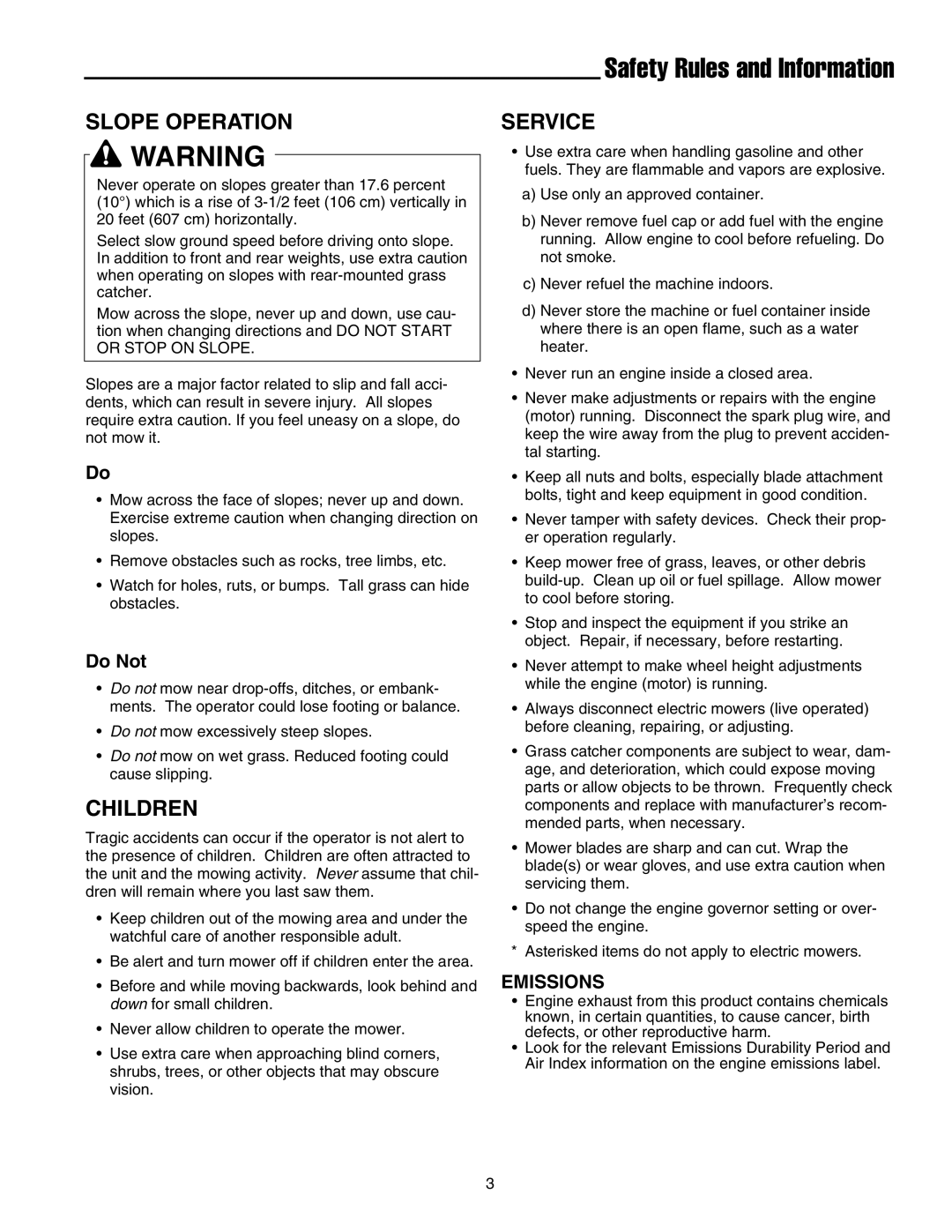GM2513BS, GM2515KAW, BC25BE, BC25H, GM2513H specifications
The Snapper FB15250KW, GM2513H, BC25H, BC25BE, and GM2515KAW are a series of robust outdoor power equipment designed to tackle a variety of landscaping tasks. Each model comes with unique features and characteristics that cater to different user needs, ensuring efficient performance and reliability.The Snapper FB15250KW is a versatile 21-inch push lawn mower equipped with a powerful 150cc engine. It features a 3-in-1 cutting system, allowing users to mulch, bag, or side discharge grass clippings. Its lightweight design and ergonomic handle make it easy to maneuver, while the adjustable cutting height provides flexibility for varying grass conditions. The easy-start engine technology ensures quick and reliable starting in any weather, making it a favorite for homeowners.
The GM2513H model is a gas-powered walk-behind mower that focuses on durability and performance. Its 25-inch cutting deck allows for larger mowing areas, perfect for medium to large lawns. This mower is equipped with self-propelling capabilities, which significantly reduces user effort during operation. The mower’s high rear wheels provide stability and traction on rough terrain, enhancing overall mowing efficiency.
For those looking for a string trimmer, the BC25H and BC25BE models offer exceptional performance. The BC25H features a powerful two-cycle engine and a straight shaft design, making it ideal for trimming hard-to-reach areas. Its lightweight build ensures maximum comfort during extended use. The BC25BE, similarly equipped with a robust engine, adds versatility by incorporating a detachable design for easy storage and transportation.
Lastly, the GM2515KAW is a high-performance riding mower tailored for extensive lawns. It boasts a powerful engine and a wide cutting deck, which cuts down mowing time significantly. The comfortable seat and adjustable steering provide an excellent user experience, allowing operators to navigate their lawns with ease. Additionally, the mower is designed with advanced safety features, ensuring user confidence during operation.
In summary, the Snapper FB15250KW, GM2513H, BC25H, BC25BE, and GM2515KAW cater to diverse landscaping needs, providing users with efficiency, ease of use, and reliability. These models embody Snapper's commitment to quality, making them ideal choices for both residential and professional applications in lawn care.

